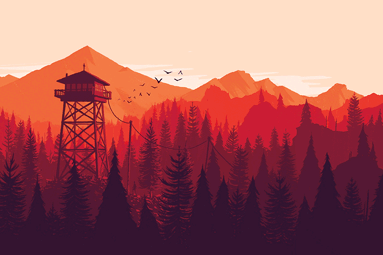App Developer Panic Switches Gears with Video Game "Firewatch," a Mystery Set in the Remote Wilderness
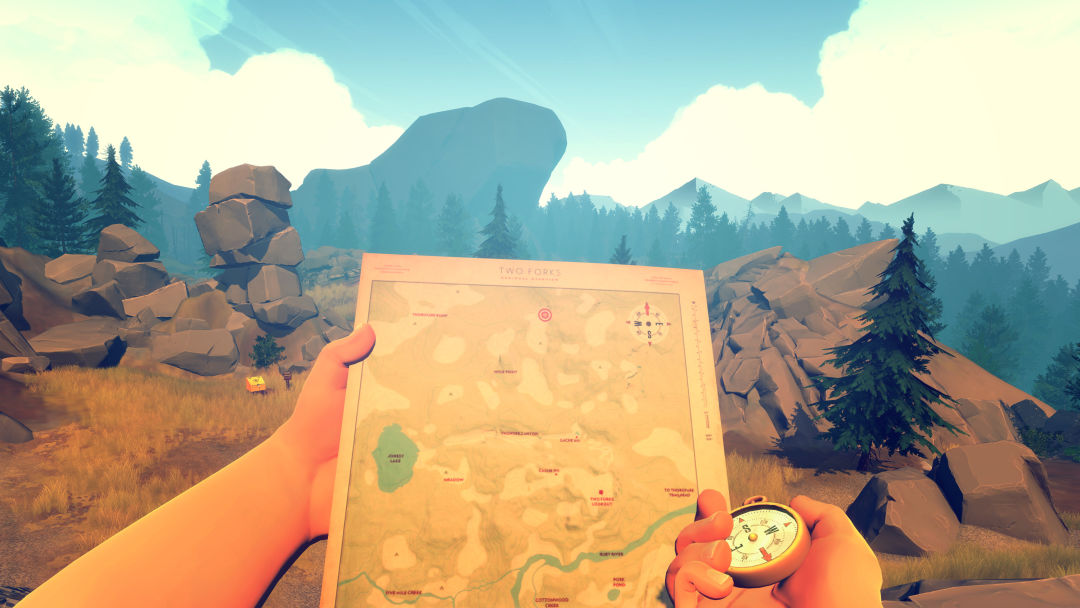
Image: Campo Santo
The premise is simple: It's 1989, and you are Henry, working in a fire lookout in a remote Wyoming wilderness. Your only contact to the outside world: a voice over the radio who identifies herself as your supervisor, Delilah. Then, something forces you to leave the confines of your lookout. That is where Firewatch begins.
In 2013, Fullbright's critical and commercial hit Gone Home put Portland on the map as serious player in indie game development. Releasing today, Firewatch might just cement that status for good. If the early reviews can be taken as a sign, the chances of that are pretty strong.
In a strange reversal of trends, Firewatch is the product of San Francisco creatives and Portland money: Campo Santo, started by two vets from Telltale Games, Sean Vanaman and Jake Rodkin—who, among other projects, are responsible for the ridiculously popular Walking Dead video games—and Panic, the comparatively ancient local tech company that was making serious Mac apps before it was cool. (Portland Monthly chatted with Vanaman about the game's development in October 2014.)
"We’ve known Jake for an incredibly long time because he designed interfaces for our Mac MP3 player called Audion back in 2000," says Panic's founder and CEO Cabel Sasser, who bankrolled the project. "As admirers of his work, somehow we just became friends."
We talked to Sasser to ask him how Panic has made the leap from app developer to game publisher.
After two years, the game is finally releasing Tuesday. How are you holding up?
It’s chaotic. The reviews have been pouring into today. They’re good. I think people are enjoying it. Which is a huge relief. Thank god.
Panic is Firewatch's "publisher." What does that mean?
On the most fundamental level, we loaned them a bunch of money. But in reality it was a lot more complex than that. And simpler in other ways. We checked in all the time. We were a sounding board for ideas. Guys here did Q/A on it. We worked on website stuff.
There’s a crazy feature in the game where you can take photos with a disposable camera. Sorry, that’s a small spoiler. At the end of the game you have an opportunity to upload your photos to a website. We worked on that website.We concocted this fictitious photo company called Photo Dome and made the logo. And then we thought, well, it would be cool if you could print your photos out. We thought that was so cool that we couldn’t help but do it. So now we find ourselves with 4 photo printers and a pallet of supplies coming on Wednesday. (Laughs) We’re actually turning into a photo mat here at Panic, printing and shipping sets of photos for people. It’s just another piece of insanity that Panic brought to the table.
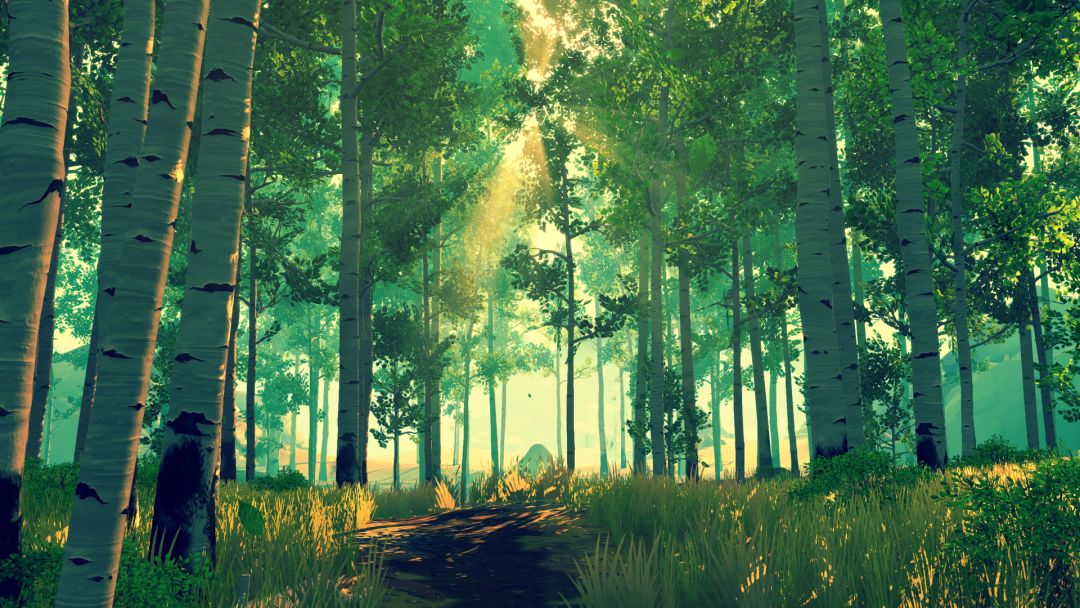
Image: Campo Santo
How big was the investment?
For us it felt like a lot of money. Until you realize it’s a team of ten people for two years. That adds up! It’s the most money we’ve ever bet on something bar none. But, the games world is huge, and we did a lot of research into other indie games, and their budgets and their revenues. Even though the number is fairly large compared to games of this scope, the quality we totally got is a bargain. Those goes did an insane amount of work for comparatively not a lot of money. When they talk to other people in the industry, they are always kind of stunned that we managed to pull off this game.
It helps that those guys worked at Telltale, where the games are episodic. There, it was a game every X weeks. So they were already kind of in the mindset It wasn’t like, we’re going to spend eight years to craft this masterpiece.
In terms of the game itself, were you pretty hands off?
Their job is to make the game and our job is to support the game. We had one big playthrough back in October, and we generated pages of notes. But we had no expectation that any of it would be followed. It was really clear when we signed this deal that they have creative control of the game. For them, obviously, that’s attractive. Working with any other publisher that’s not going to be the case. They’re going to say, "You know, what if we had a shotgun? That would be awesome. How about a couple zombies?"
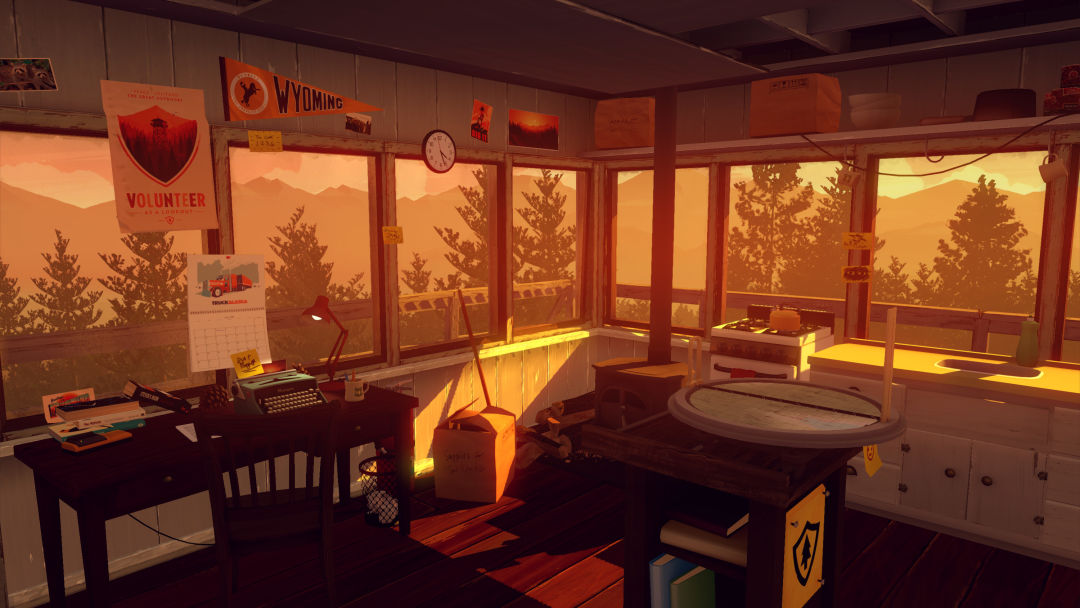
Image: Campo Santo
So you took a pretty big leap of faith...
I wouldn’t want it any other way. I wouldn’t want to tell a writer or creator how to compromise their vision. The vision of the game, the pitch, was so strong from the beginning. Even their one sentence description, I was like, “Yup, I want to play that game. I want to be in that world.” I had total faith they would do an amazing job. It’s kind of terrifying, but at the same time, they’re such smart and creative guys, there was little doubt that what came out at the end would be something cool. It would be harder for us to do this with guys who we didn’t already have a relationship with.
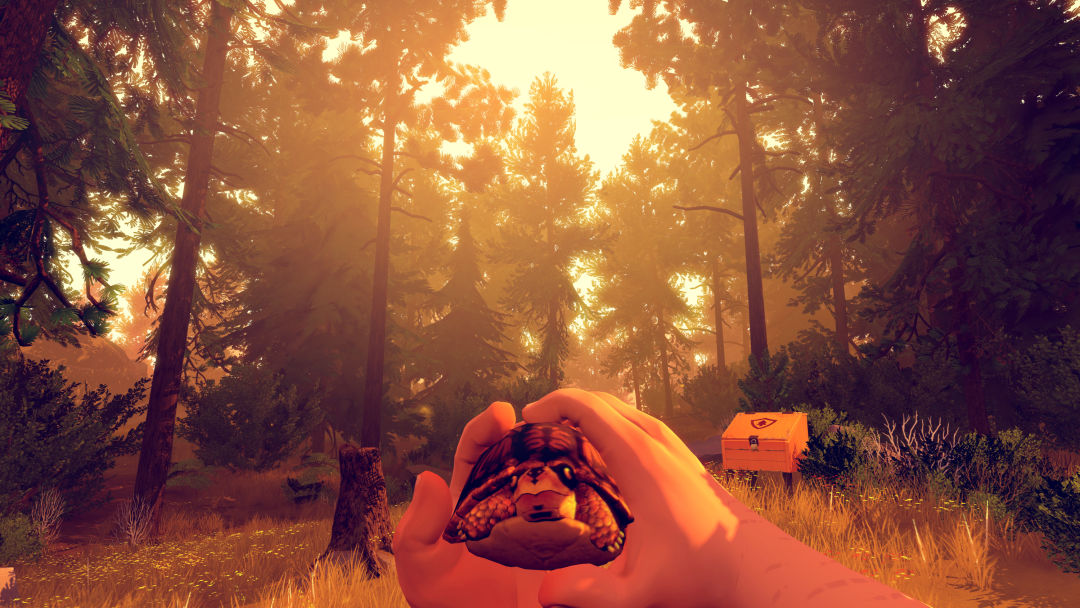
Image: Campo Santo
Is there a benchmark for success?
If we can make our money back—and have learned a ton—then it was worth it completely. If we lose some money, that will probably be okay too. We didn’t totally bet the farm on it. We’re not going to disappear. Our thought is, let’s just break even, and then it will be two years well spent.
Any chance there are more Panic games coming?
I don't know. For us, it’s really interesting in that it gives us a lot of experience in something that would have been difficult for us to do on our own, from scratch. We’ve always wanted to know what it’s like to make a video game, but to build that competency out of nothing would have been impossible. This gave us a crash course.
Firewatch releases on Steam and PS4 on February 9. Check out the trailer below.
